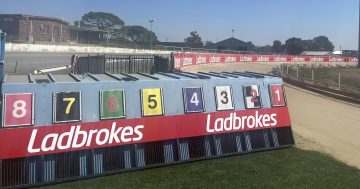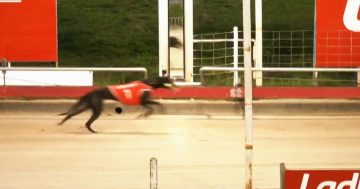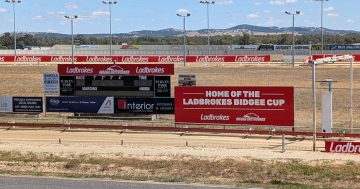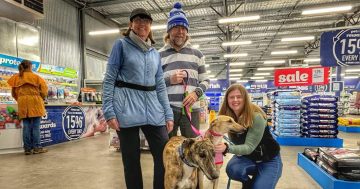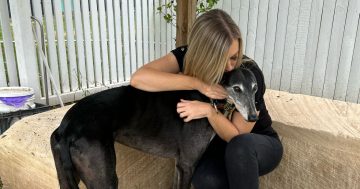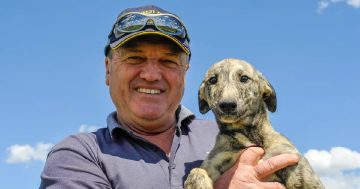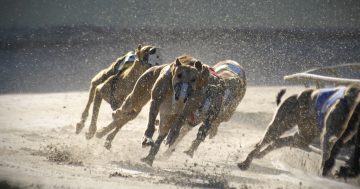
Greyhound Racing NSW says greyhounds are being treated better. Photo: Wikimedia Commons.
Regulator Greyhound Racing NSW (GRNSW) has released its annual report for 2023/24, which claims the rate of dogs that need to be euthanised at the track is at its lowest level in a decade, while the number that are being rehomed as pets is at a record high.
Critics, however, claim figures presented are misleading and serious animal welfare concerns persist in the industry.
GRNSW claims that a record 2794 greyhounds were assisted to pet life, surpassing the previous year’s benchmark of 2202, while investment for the Greyhounds As Pets program increased by more than 50 per cent to $18.1 million.
Catastrophic injuries, where a greyhound is euthanised at a track due to an injury sustained on race day, are reportedly at their lowest since records began in 2015-16, with the injury metric falling to 0.21 per 1000 starts in 2023-24, down from 0.65 in 2022-23.
Sian Rinaldi of the ASCT Greyhound Support Network doesn’t buy the picture painted by these figures.
“This is where the industry is very good at finding ways of defining things,” she said.
“My understanding is that catastrophic injury means the dog was euthanised at the track, due to something like a fractured hock or broken spine. But that’s an easy metric to fudge. You could easily just take the dog to a vet the next day to be put down so it’s not recorded on the [regulator] statistics.”
Ms Rinaldi has rehomed hundreds of greyhounds herself. She doesn’t see much improvement in this area.
“There may be more being rehomed, but that’s because you can’t euthanise them as much as was done before,” she said.
“It used to be the greyhounds were really good pets, they were confident and happy. But the dogs we are seeing now more consistently have behavioural issues. We are seeing more and more dogs on anxiety medication. Previously those dogs would have been euthanised. But they take longer to rehome.”
She says the industry is breeding far too many dogs, much more than can be feasibly rehomed.
“Greyhounds typically have large litters, sometimes up to 12. Only one or two will be good at racing. So they’re not going to put much effort into those that don’t have an inclination to race … these dogs aren’t looked after well.
“The industry fights tooth and nail not to do things, to not have to do basic things to ensure dogs have a reasonable life, while simultaneously telling you how much things have improved.”
GRNSW’s annual report also noted it had recorded a $16.7 million loss for the last financial year.
“Like for many organisations, FY23-24 presented its challenges to our operating environment,” GRNSW Acting CEO Wayne Billett said.
“Similar to other racing organisations across the country, the softer wagering market significantly impacted GRNSW’s income.
“GRNSW has taken prudent steps to align our cost base with forecasted wagering market performance. I’m particularly pleased that, thanks to the strong results from previous years, we maintained full support for our participants and animal welfare initiatives, reaffirming our pursuit of excellence throughout 2023-24.”







